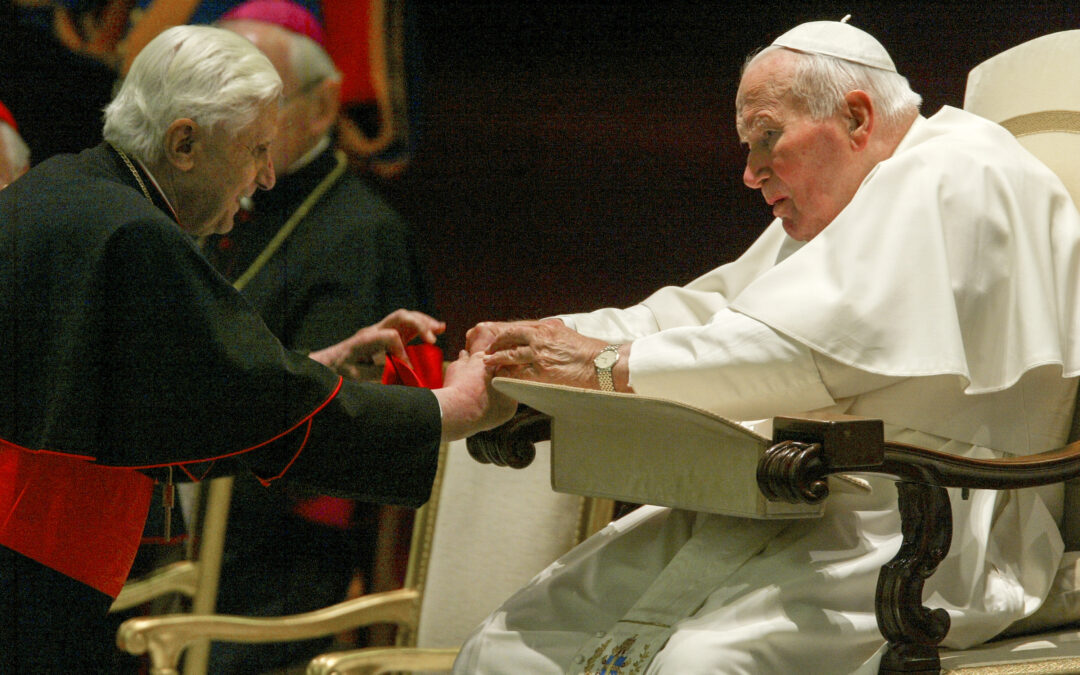Pope St. John Paul the Great and Pope Benedict XVI have a common thread in their writings and their partnership, both in the pre-papal years and during their pontificates: a particular emphasis on ‘Catholic Humanism’ – or perhaps put differently, theological anthropology, which refers to the dignity of the human person made in the image and likeness of the Triune God, called to share in divine communion.
In his first encyclical, entitled Redemptor Hominis, John Paul II wrote the following regarding humanism:
The name for that deep amazement at man’s worth and dignity is the Gospel, that is to say: the Good News… is also called Christianity. This amazement determines the Church’s mission in the world and, perhaps even more so, “in the modern world”. This amazement, which is also a conviction and a certitude – at its deepest root, it is the certainty of faith, but in a hidden and mysterious way, it vivifies every aspect of authentic humanism – is closely connected with Christ.
During the transition from the pontificate of Pope St. John Paul the Great to the pontificate of Pope Benedict XVI, Joseph Cardinal Ratzinger delivered a homily at the Holy Mass prior to the Cardinals’ entrance into the conclave on April 18, 2005, that provides a most fitting quotation to describe the endeavor of the Institute of Catholic Humanism:
Today, having a clear faith based on the Creed of the Church is often labeled as fundamentalism. Whereas relativism, that is, letting oneself be “tossed here and there, carried about by every wind of doctrine”, seems the only attitude that can cope with modern times. We are building a dictatorship of relativism that does not recognize anything as definitive and whose ultimate goal consists solely of one’s own ego and desires.
We, however, have a different goal: the Son of God, the true man. He is the measure of true humanism. An “adult” faith is not a faith that follows the trends of fashion and the latest novelty; a mature adult faith is deeply rooted in friendship with Christ. It is this friendship that opens us up to all that is good and gives us a criterion by which to distinguish the true from the false, and deceit from truth.
From these brief examples, we can see that John Paul and Benedict prioritize incarnational humanism, finding the meaning of all human life in gazing at the human face of God in Jesus Christ.

